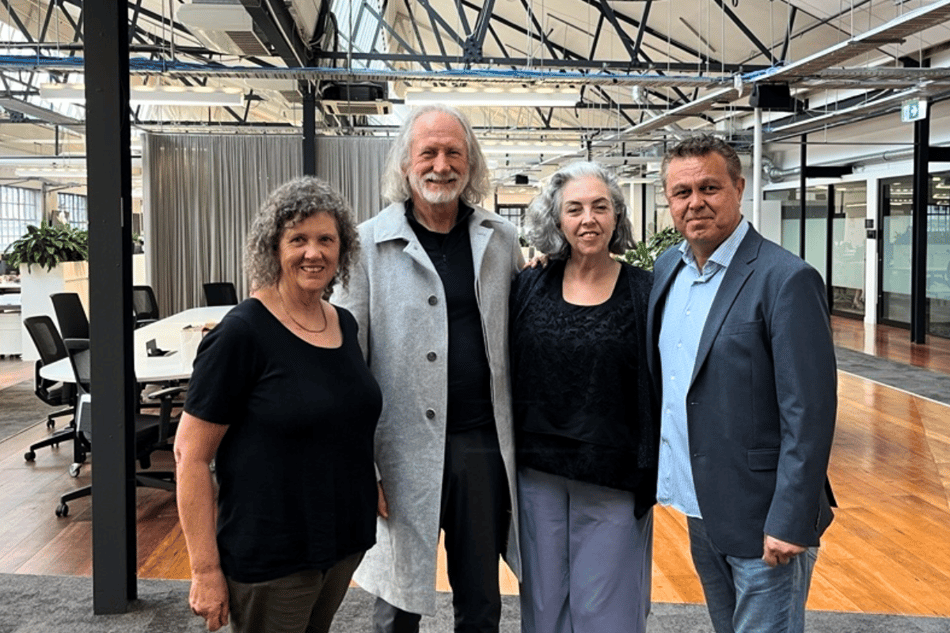GPs as business owners deserve impactful support and so do their communities


This article was first published in NZ Doctor.
As David Thompson outlines, there are solutions available for doctors struggling to find the resources to operate their practices profitably while also creating a legacy for their communities.
Doctors excel in providing exceptional care to their patients, but many struggle to dedicate the time and resources needed to run their practices efficiently and profitably.
Key tasks such as timely invoicing, effective debtor management, and controlling overhead costs often take a back seat. Meanwhile, rising expenses and closed patient books further strain their operations.
While salary-to-revenue ratios typically range between 55-60%, many practices experience imbalances due to insufficient staffing. This lack of resources prevents them from opening patient books, creating a cycle of stagnation. Compounding the issue, many practices lack forward-looking strategies, including succession planning.
So, where is the next generation of practice owners?
Many young doctors are heading overseas to tackle substantial student loan debts. Those who remain often feel ill-equipped to navigate the complexities and risks of business ownership—skills they were never trained for. Unlike their older counterparts who avoided this financial burden, today’s healthcare workforce faces unique challenges that threaten their professional stability.
In my previous role within the health sector, I spoke with over 300 GPs nationwide. Many shared a sense of burnout, feeling trapped by circumstances that may force them to sell their practices at below-market value to corporate buyers. With a wave of retirements looming, the value of these practices risks further decline.
We are at a critical juncture. There is still time to reverse this trajectory, but the window for meaningful change is rapidly closing.
To address the challenges facing general practices, we must encourage more GPs to prepare their businesses for sale while implementing the necessary operational changes to enhance both profitability and long-term viability. This means streamlining processes, managing costs effectively, and adopting practices that improve the overall capability of their businesses.
These steps will ensure that practices not only attract buyers but also thrive in the lead-up to a potential sale. However, preparing for sale is just one part of the solution.
Equally important is creating sustainability within general practice businesses. To achieve this, it's essential to introduce key staff—be they practice managers, doctors, or nurses—to the possibilities and rewards of business ownership. Providing these individuals with a stake in the practice creates an incentive for them to remain invested in its success. Ownership, or even a pathway to ownership, gives staff "skin in the game," which is crucial for encouraging long-term commitment and loyalty.
This approach yields numerous benefits.
Staff who feel a sense of ownership are more likely to take an active interest in the practice's growth and success, leading to stronger teamwork and improved workplace culture. A positive work environment translates into better service delivery, which directly impacts patient satisfaction and outcomes. When patients are happier and more engaged, the overall well-being of the community improves.
Cultivating a culture of ownership among staff helps mitigate the looming succession crisis in the health sector. Many younger doctors and healthcare professionals are wary of the burdens of business ownership. By introducing them to the concept early and demonstrating its rewards, practices can build a pipeline of future owners who are equipped and willing to take over when current GPs retire. This is especially important in the face of a healthcare landscape where the older workforce is exiting, and younger generations face significant financial and professional challenges.
For owner of Milford Medical Dr Paul Butler, general practice has been his lifelong career. Like many GPs, he has had no succession plan for the practice, despite recognising how vital its continued availability is for the community.
Working with a specialist Icehouse coach Mary Baldwin, will allow Paul, together with his senior leadership team, to change the future of the Practice.
“After forty years as an owner, our practice is well overdue for implementing a succession plan. We need this to sustain up to 6,000 patients and 12 staff in our General Practice. We would also like the practice to develop further to reach the potential that its location and our vision provides. The goal is to reform, reorganise, and optimise our systems to attract some staff to invest in ownership. The ability to sell shares in the practice will allow new committed owners to continue to evolve the practice. To be sustainable, we must become a well-functioning general practice at all levels, including profit margins, to achieve succession and to navigate and survive turbulent times.”
Encouraging sustainable business practices and promoting ownership pathways can also help attract and retain talent. In a competitive job market, a practice that offers a clear future, including opportunities for leadership and financial growth, will stand out.
For rural or underserved areas, where recruitment and retention are particularly difficult, this strategy could prove transformative.
Sustainability in general practice is not just about preparing for a sale but about creating a legacy of stability and success.
By combining operational improvements with innovative ownership models, we can ensure that practices remain vibrant, competitive, and capable of serving their communities for generations to come.
David Thompson has a career spanning 20 years in the health business sector. He is now the regional manager for business growth organisation, the Icehouse.




.png?width=50&name=Olivia%20Blaylock%20(2).png)